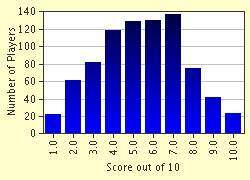Quiz Answer Key and Fun Facts
1. Prior to his conversion to Christianity, Paul (then Saul) consented to the murder of Stephen. What did Saul do during this conflict?
2. Whom did Paul confront "to the face," because he separated himself from the Gentiles?
3. Though Paul generally confronted and opposed those who insisted converts be circumcised, he did not in every instance resist that pressure. Whom did he circumcise?
4. With what fellow laborer did Paul have such a sharp conflict that the two ended up parting ways at Antioch?
5. Paul said that Abraham was not justified by works: "For if Abraham were justified by works, he hath whereof to glory; but not before God. For what saith the scripture? Abraham believed God, and it was counted unto him for righteousness" (Romans 4:2-3). Who, however, said, "Was not Abraham our father justified by works, when he had offered Isaac his son upon the altar?"
6. What magician (or sorcerer) did Paul confront, saying, "O full of subtlety and all mischief, thou child of the devil, thou enemy of all righteousness, wilt thou not cease to pervert the right ways of the Lord?"
7. When Paul was at Philippi with Silas, the two were hauled before the magistrates of the city, and accused of teaching unlawful customs. What were they specifically criticized for being?
8. Whom was Paul said to have disputed and debated in Athens?
9. What high priest did Paul confront after being slapped across the mouth? Paul said to him, "God shall smite thee, thou whited wall."
10. Lest this quiz leave the impression that Paul was not a seeker of peace, let's try a different kind of question. What does Paul tell Christians to avoid if it would cause conflict with their weaker bretheren?
Source: Author
skylarb
This quiz was reviewed by FunTrivia editor
gtho4 before going online.
Any errors found in FunTrivia content are routinely corrected through our feedback system.

